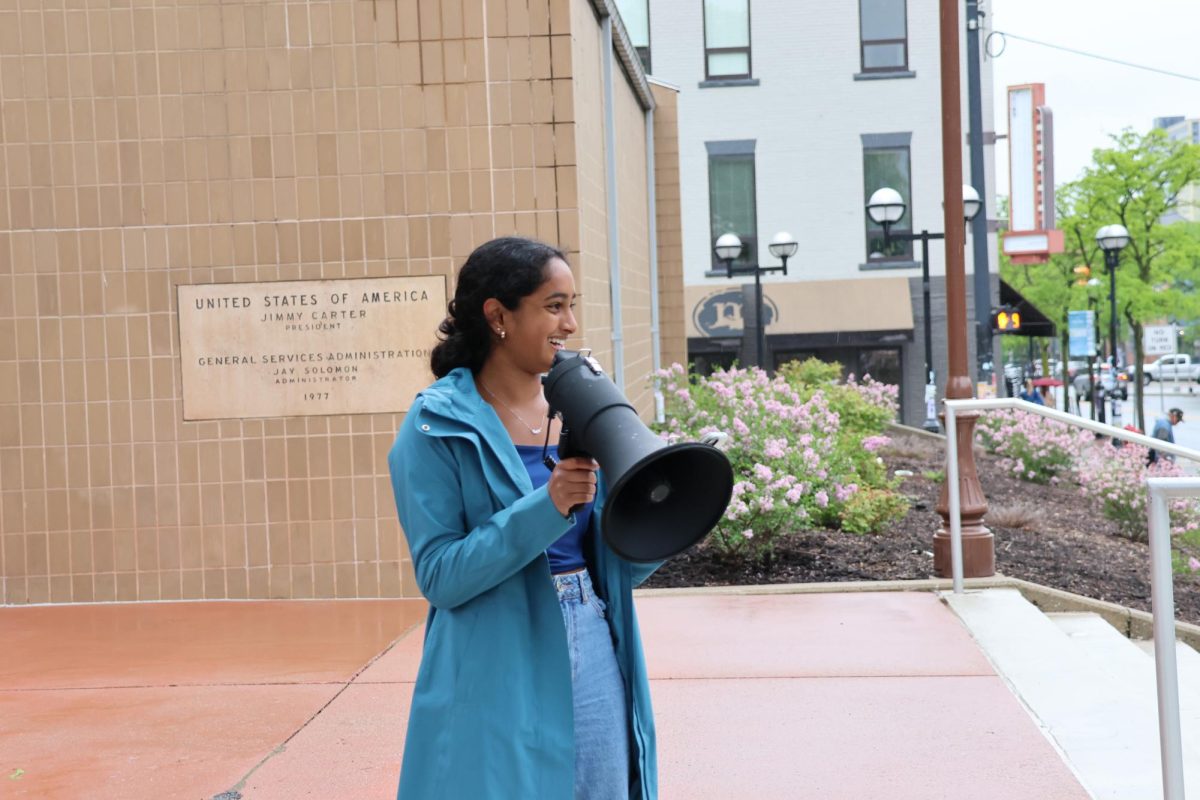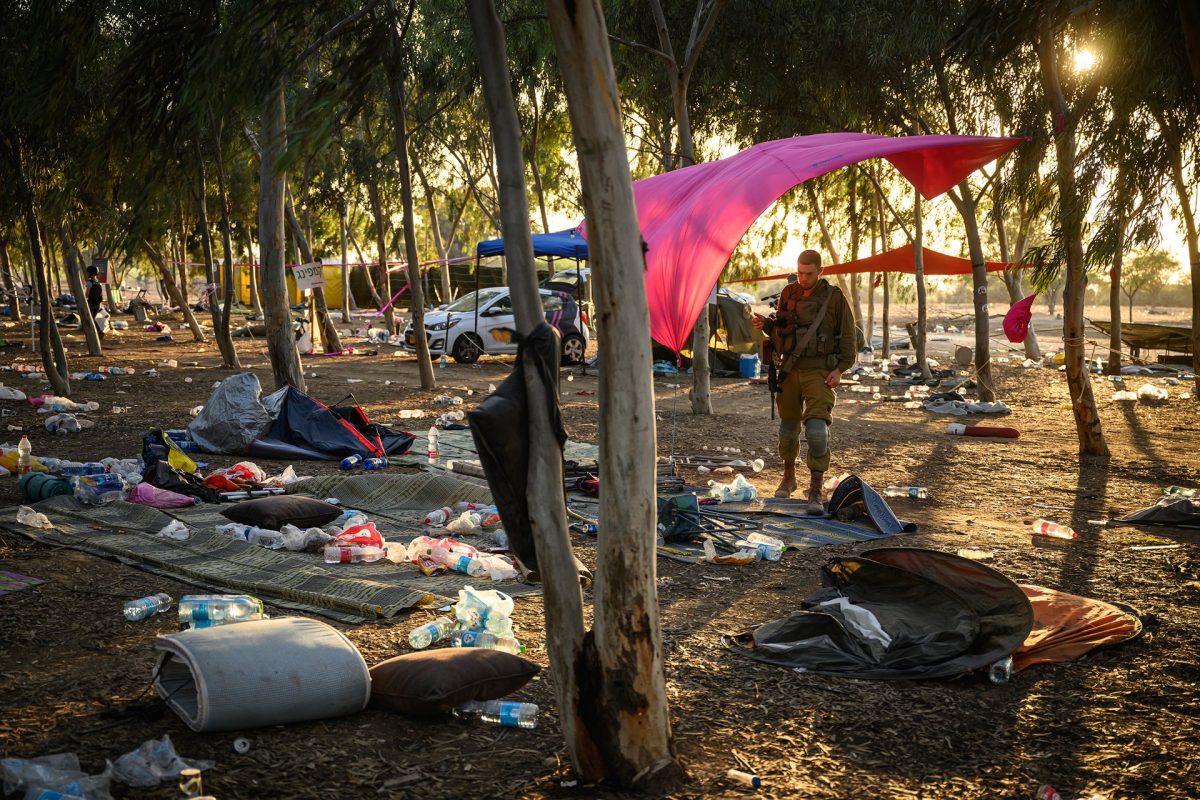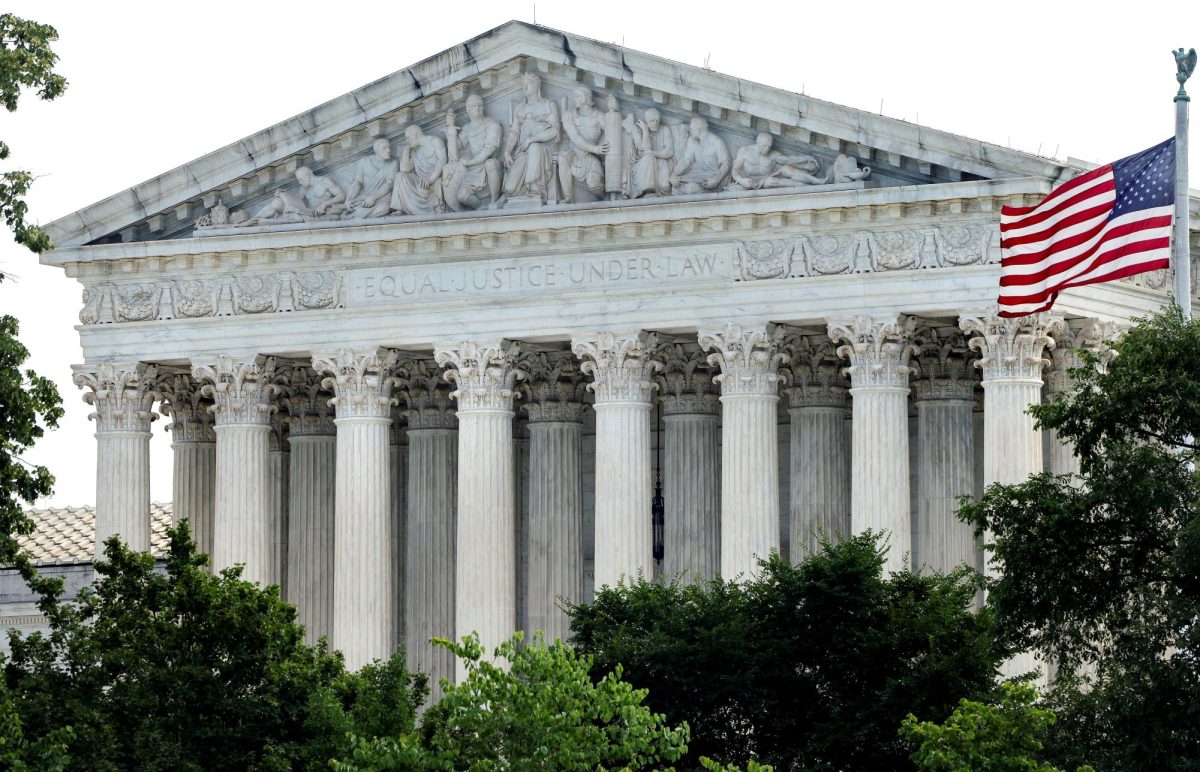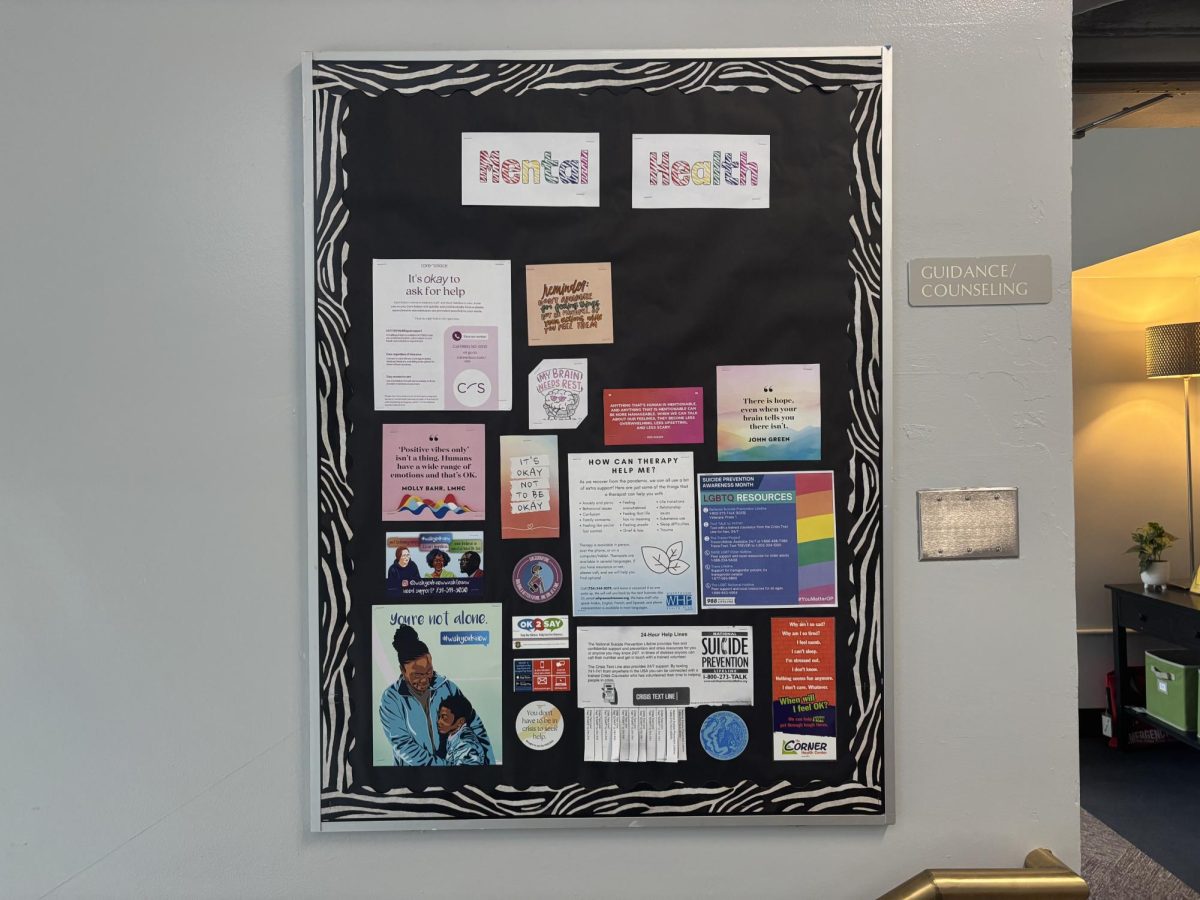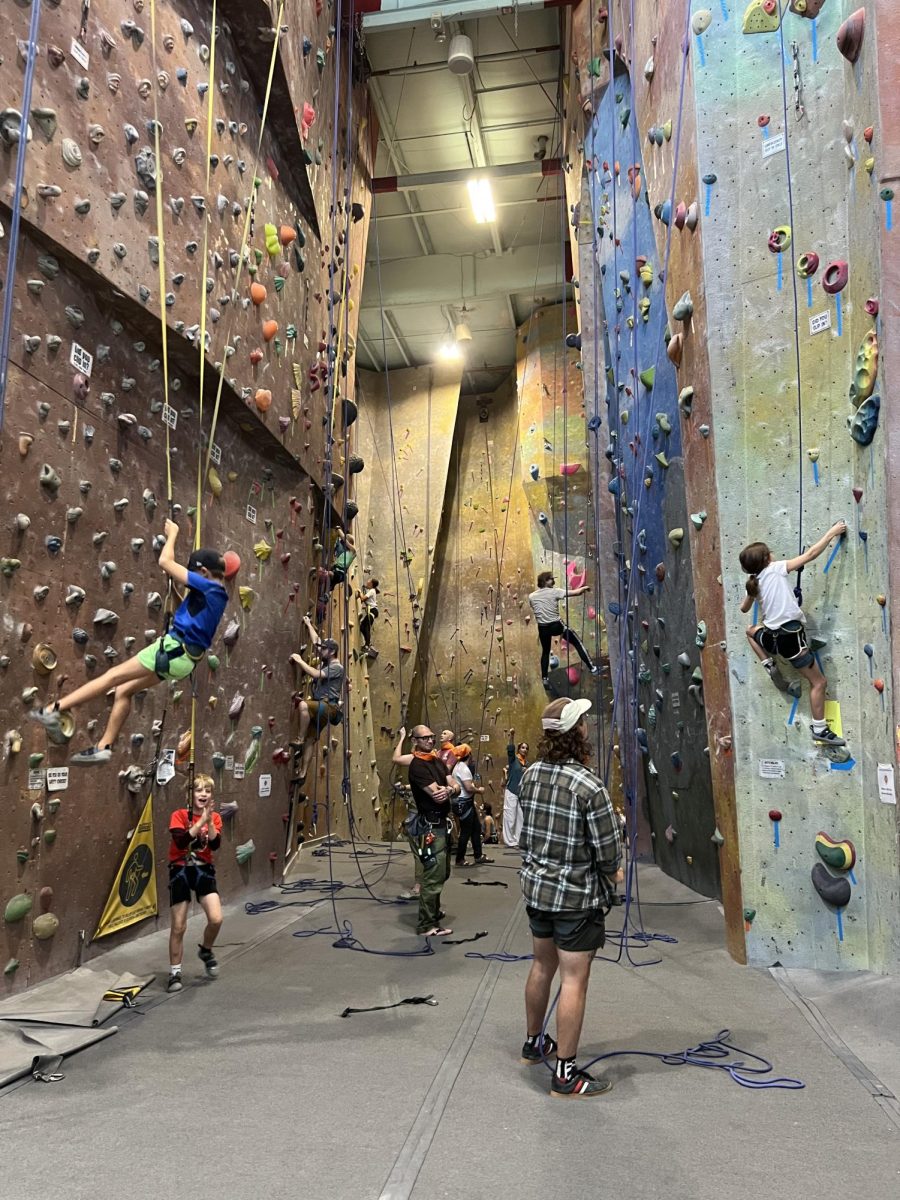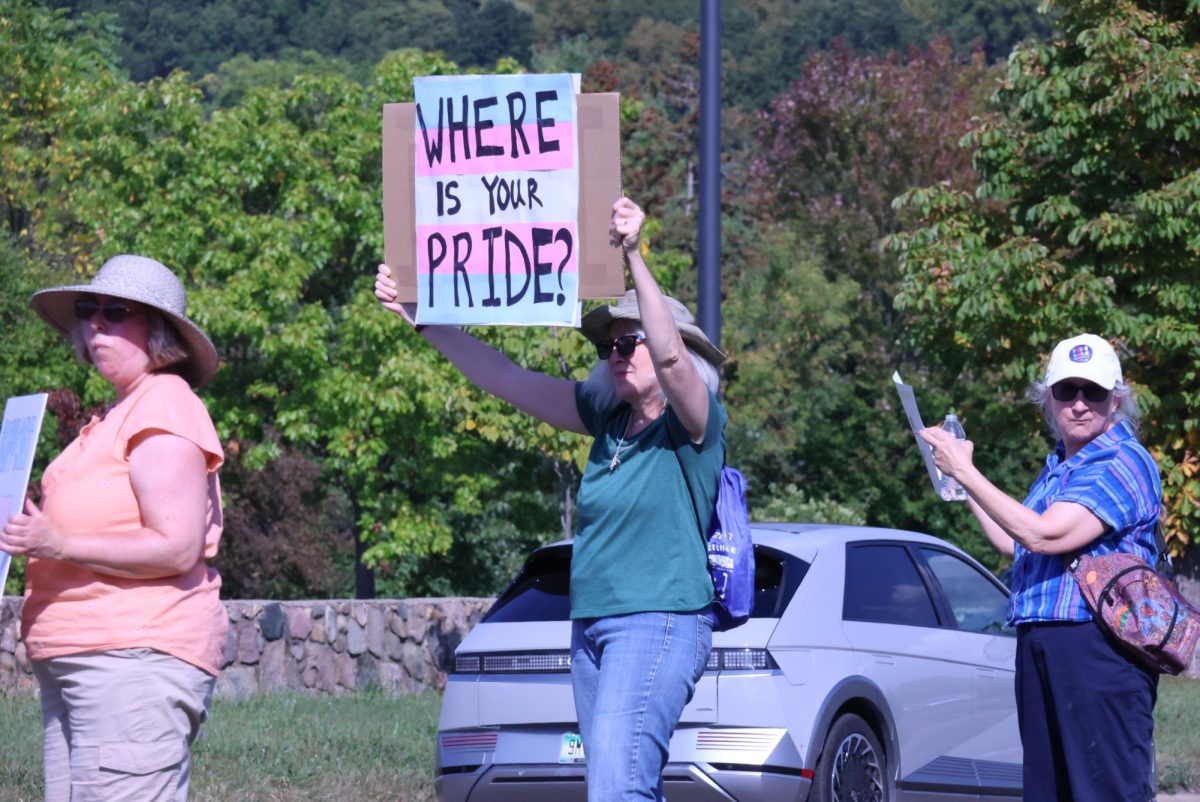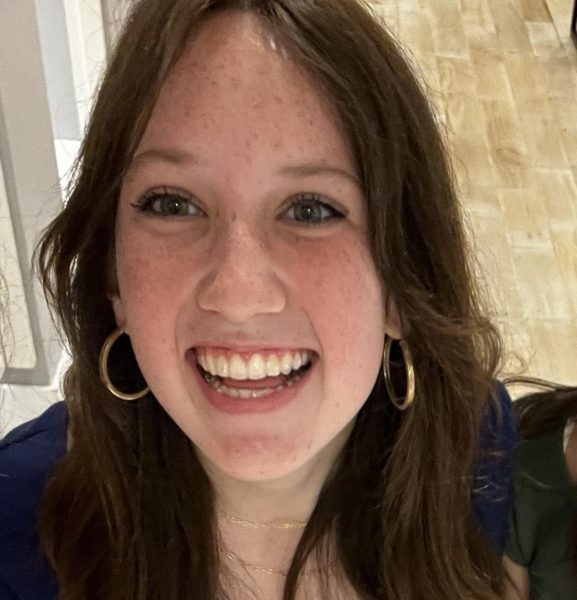On a damp spring morning in Ann Arbor, the second-floor entryway of Community High School, students gathered together in a shared moment of purpose. Dressed in blue, they stood together in solidarity with the rally’s call for peace, freedom and unity. In preparation for their walk to the Ann Arbor Federal Building, they stowed megaphones in raincoats and rolled up poster boards into a large plastic bag to protect them from the incoming rain.
The demonstration, organized by members of the CHS Feminist Club and Utopian Socialist Club, was motivated by recent headlines of threats to censorship and diversity, equity and inclusion (DEI) policies.
DEI, long tethered to the civil rights movement and affirmative action, is more than a set of institutional programs; it has brought national attention to how historical privileges related to race, gender and socioeconomic status have systematically excluded marginalized groups from access to opportunities. These initiatives have helped spark broader conversations about fairness, access and the structural barriers that continue to shape inequality.
In early 2025, the federal government dismantled DEI programs through executive orders, including Executive Order 14173, which revoked long-standing protections against discrimination in federal contracting. This rollback has had a significant impact, particularly in education and public institutions.
Clara Bailey, vice president of the Feminist Club and one of the rally’s organizers, stood among the crowd, impassioned as one of the speakers. Later, she reflected on the demonstration and its outcome.
“I think it shows that many people disagree with the violations that have been happening,” Bailey said. “I want people to understand that the issues we are protesting affect everybody. It is about defending true democracy. It is about defending our rights.”
Near Bailey, in the falling rain, stood Mariah Zeigler, wearing a tank top and jean shorts despite the chill, her arms and legs scrawled in flagged words in medical and scientific research papers for funding. Mariah Zeigler graciously volunteered to model this art due to her commitment to the cause.
“Even if you just stand in the rain during the protest, it shows that our voices are important and our cause is relevant,” said Zeigler. “I feel like every extra person who shows up and uses their voice makes the message ten times stronger.”
Kaylee Gadepalli, Co-President of Feminist Club, was driven to hold the rally as soon as harmful policies and changes in the government were put in place. Gadepalli wanted to prove that anyone can make an impact, and intended for each person who attended the rally to leave with more knowledge and empathy towards people different from them.
Growing up, Gadepalli saw how her biracial identity shaped the way others treated her, often revealing underlying biases and stereotypes. Without systems like DEI in place, there are fewer tools to bridge these divides and promote empathy across groups.
For Gadepalli, the removal of DEI has been about losing the structure that helped communities understand one another, challenge prejudice and create more inclusive environments for everyone.
“It’s not just a fight for the people who feel affected by this,” Gadepalli said. “It should be a fight that everyone is involved in, because whether or not the elimination of DEI affects you, it definitely affects people that you love and know.”
In a time when the loudest voices often dominate the discourse, what set this rally apart was not the decibels, but the depth, the insistence that democracy requires not just votes or slogans, but participation, even (and especially) from those too young to cast a ballot.
For a few rain-soaked hours on a weekday afternoon, the students of CHS offered a glimpse of what civic imagination may look like. Not perfect. Not performative. But present.



